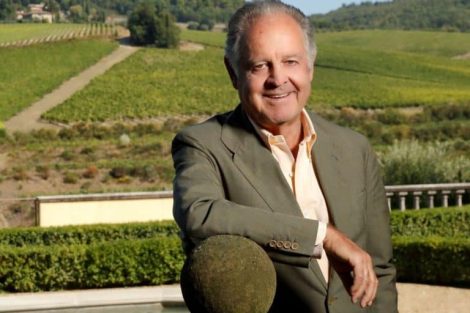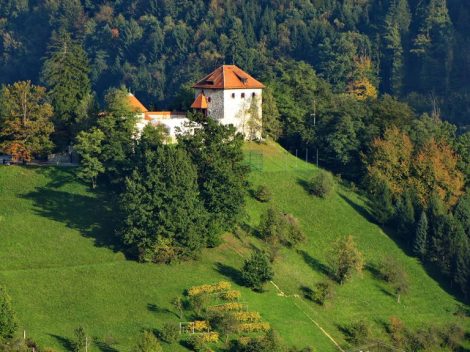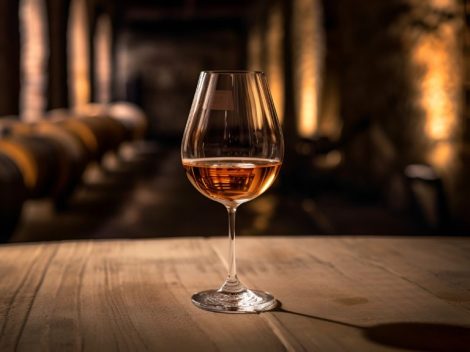Only ten months have passed since Florencia Montes and Lorenzo Ragni opened their restaurant in Nice, and already Michelin has arrived, awarding Onice with a star. You can read it the Italian way or the Spanish way, taking as a reference the stone that someone calls alabaster, or imagine it in French, as if exclaiming Oh Nice, perhaps with a sigh in front of the sea. The name is like this: one and two. The cuisine, however, is not: it's clear, straight as an arrow, speaking of raw materials, technique, precise flavors. It rests on certain foundations, those that Florencia and Lorenzo have acquired in their paths.
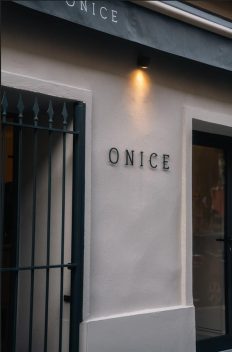
Florencia Montes and Lorenzo Ragni
Florencia is Argentine, she has worked at Chila, Septime, Faviken, but it is at Mirazur in Menton where she stays the longest, at the court of Mauro Colagreco, the Argentine of Italian origins who has climbed to the top of the gastronomic world. Lorenzo, on the other hand, is Umbrian, and he began to take his first steps in his father's pizzeria in Magione, helping his father on vacation from the hotel school. Afterward, he worked a bit in Italy, landing at Enrico Crippa's, then in London: The Ledbury, Aquavit, and Dabbous. Four years in total, during which he also found a way to slow down a bit to understand well which direction to take. At one point, he even started his own street food business with gnocchi with local cheeses: Italian food with British products. A good idea, well received, which fortunately closed just before the pandemic and lockdown. It was his first venture as an entrepreneur, fundamental to learn how to manage even very high numbers in an international context as perhaps only in London is possible. At that point, he decides to return to haute cuisine and begins sending out resumes, also ending up in Menton, where he meets Florencia. It takes very little to understand each other and decide that the time is ripe to leave the world of Colagreco and start their own restaurant.
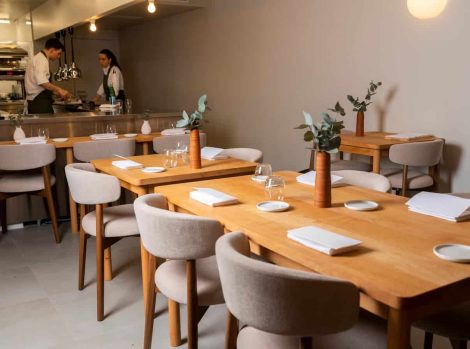
Photo Natalia Khoroshayeva
Onice in Nice
Both expats look around, every destination is possible, but then they decide that Nice is the right place, for its size, tourism, economies, "and then we really like this part of France." They find the location and start. Just over 100 square meters on two floors, with a small room on the basement floor and most of the tables on the ground floor, in a fresh, bright environment. "We have 29 chairs, but with just 25 people, we're full," he says. After all, it's just the two of them in the kitchen with a dishwasher and two people in the dining room. Since the end of 2023, they have a couple more people, also because a baby is on the way and a new organization will be needed.
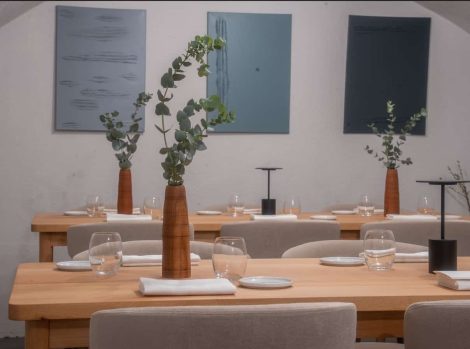
Photo Natalia Khoroshayeva
They raise the shutter on May 3, 2023, without thinking about the kitchen: "two weeks after the opening, they cut off our gas due to some work on the line, it seemed it would take at least two months to reconnect it: we were shocked. We stirred everyone." In the end, they manage to solve it in time, but who thought about the menu to make? The life of entrepreneurs had taken the place of that of chefs, for a while, at least until the opening. From then on, things follow their course: they get to work, following a clear but not yet defined idea: "They knew the direction, not the road"; people arrive, the press is interested, and everything proceeds until the arrival of the Michelin star, which rewarded them with a star. "Did we expect it? No!"
What changes with the star
Michelin shines a spotlight on this small restaurant, now always full, "this is the most important thing, first of all, we are entrepreneurs. Now we are more relaxed about being able to pay the employees, we would like to make them work better, to take machines that can help and speed up work; but now we also need someone else, because with the star, there has been a sudden surge in work." Normally, he explains, shifts for employees are from 4/5 pm to midnight, alternating to cover lunch and dinner services on weekends - "we want the guys to be well; she and I work crazy hours, I think it's inevitable since it's our business, but the staff must have more normal hours, they usually organize themselves, even if there is a lot of work, you have to try to stay within certain shifts. The goal now is to improve, recover, and organize ourselves: we are running a marathon, not a sprint." With the star, expectations and desires also grow: "we also want to give something more to customers, like acoustics, air conditioning, more comfortable chairs, and nicer dishes: we knew we had to improve some things, we nodded and suffered in silence, but we couldn't do more." The wine cellar, which started with 20 references, has reached 120, mostly French, many artisanal and natural, and they are also starting to think about the non-alcoholic proposal. Meanwhile, the kitchen is evolving - "it's starting to be a bit more like what we like, we know where everything comes from, the dishes are more complex in their simplicity, but they are never difficult to understand, we do things that are first of all good and that people can appreciate. That's why we listen a lot to customers, criticisms, feedback".
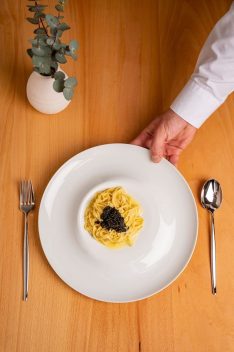
Tagliolini with caviar. Photo: Natalia Khoroshayeva
What you eat at Onice
Theirs is a cuisine linked to the product and the territory, "almost 95% of the products are from our area, we work with farmers who give us their products, I go there twice a week, and then there is the market of small farmers on Saturdays. So we can meet our needs, obviously there is a need for organization: for some things, like butter and dairy products that we get from Melanie, a lady from the Loire, we have to ask a week in advance, however, we must adapt to the products available: we do what we like with the available product." The kitchen follows the garden, and to do this, flexibility is needed. That's why working only with tasting menus works, even for those dishes that remain for a very short time: "We're happy that all customers try them, rather than putting them on the menu and seeing them age." Some remain only 3 or 4 days, others a month and a half, but in general, the menu is quite dynamic. No signature dish? "A dish we made at the beginning has stuck with people, it's the tagliolini with beurre blanc and French caviar, it's simple but it was very popular."
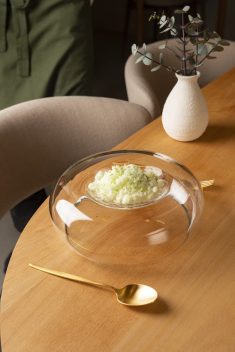
Photo: Natalia Khoroshayeva
Spring menu
Now it's time for more spring dishes: with beef, there's the beetroot from a producer who makes small ones, they use it in every part: baked, glazed with a beet juice obtained by cryoconcentration, while with the leaves and stem they make condiments; seasonal vegetables - whether chard, turnip tops, or wild asparagus - they use them for gnocchi stuffed with cheese, fava beans are together with the beef and oyster tartare, while peas go with calamari in a kind of ragout with pod emulsion; local yuzu (we are in citrus land) is with the catch of the day and broccoli, while kiwi - "we have a producer who has very sweet kiwi" - they use them in a pre-dessert with raw milk ice cream, pistachios, and nasturtium. The line of a direct cuisine remains, which to the customer seems very simple, even if it often hides very technical and long preparations: "We're trying to go for a depth that's not too cerebral, too complex, we want people to feel what's in the dish without having to strain to understand it." The taste is what matters. After all, their backgrounds speak for themselves: raised by chefs very attached to the product, to vegetables, to the territory – Crippa and Colagreco with their legendary gardens are true masters – they have similar paths. "The chef mentors of our chef mentors had common roots. Our "grandparents" had something in common," says Lorenzo, to explain how Colagreco with the example of Alain Passard, Crippa with Michel Bras and Marchesi (who in turn intertwined with the Troisgros), have developed elective affinities that have reached Florencia and Lorenzo. "We like the same things, the same way of working, and even if things may be a bit different between us, we fit together, I think that's our strength." The work of four hands and two heads produces an improved version of the dishes compared to the original one conceived by one alone. An old advertisement also said that.
Onice - Francia - Nizza - 5 Rue Antoine Gautier - +33 04 93 56 18 30 - https://www.restaurantonice.com

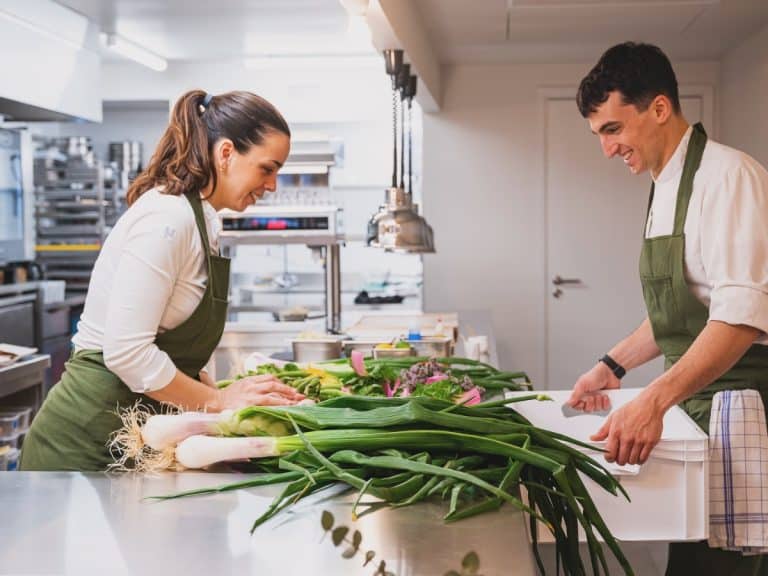
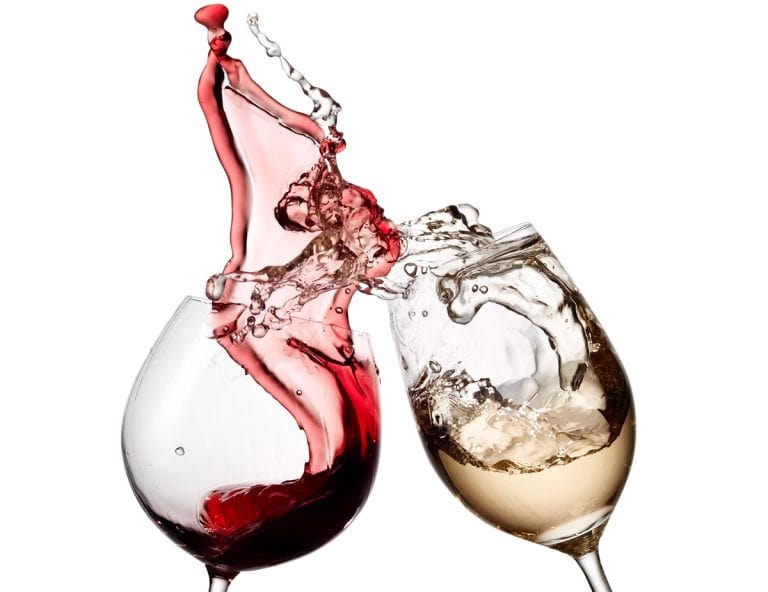 The Game (and the misunderstanding) of dealcoholised wines: even an expert critic can be fooled at first sip
The Game (and the misunderstanding) of dealcoholised wines: even an expert critic can be fooled at first sip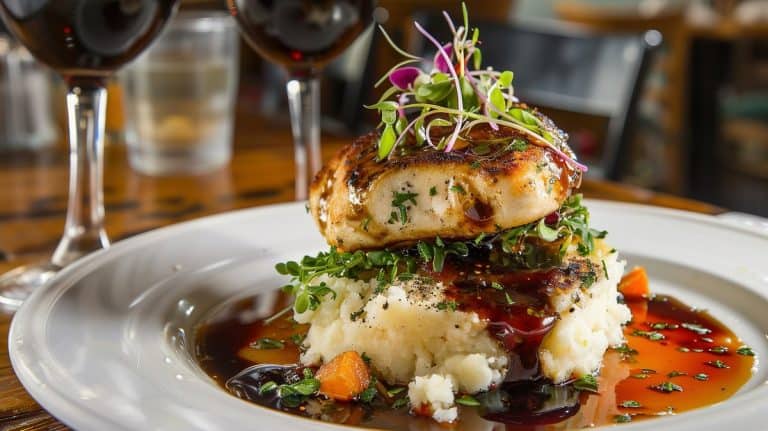 With fish, you can (also) drink red!
With fish, you can (also) drink red!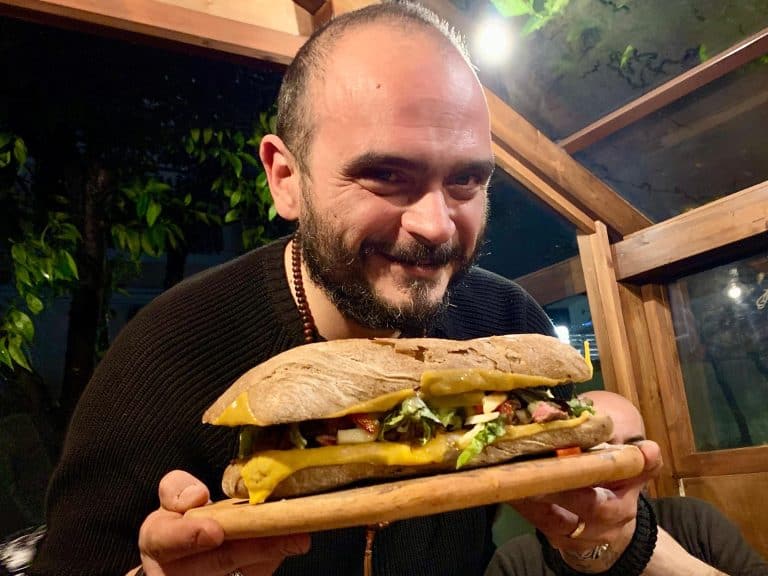 The story of the pharmacist who dispenses prescriptions by day and crafts gourmet burgers by night
The story of the pharmacist who dispenses prescriptions by day and crafts gourmet burgers by night It's time for light Prosecco: the lower-alcohol version is the latest innovation in record-breaking bubbles
It's time for light Prosecco: the lower-alcohol version is the latest innovation in record-breaking bubbles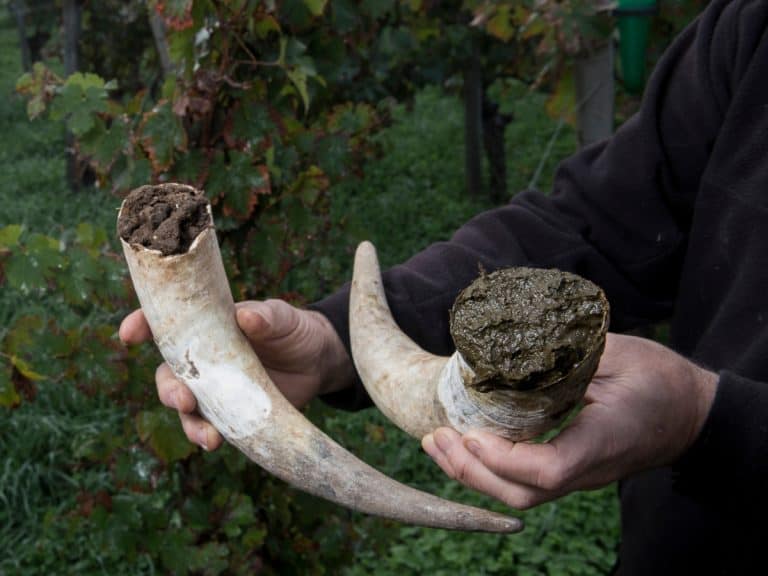 "Biodynamic preparations ave no effect on viticulture": The shocking conclusions of a Swiss study
"Biodynamic preparations ave no effect on viticulture": The shocking conclusions of a Swiss study

